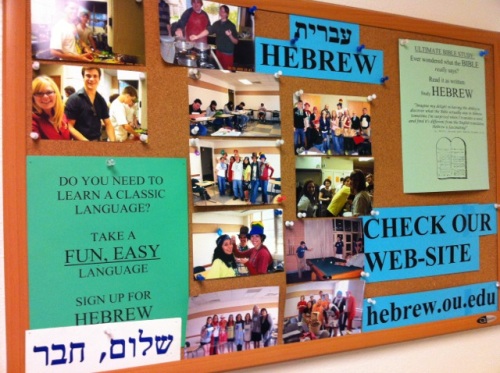Just posted this today at the HBU School of Christian Thought blog. Reblogging for those who don’t catch the SCT site regularly.
One of our MA in Biblical Languages students did an undergrad degree in French at the University of Oklahoma. While on a brief visit to his old alma mater recently, he snapped this picture of one of the bulletin boards in the language department. Especially intriguing is the green flyer. So . . . Hebrew is a fun, EASY language! Who knew?
Of course, my students who are in the middle of learning first-year Hebrew don’t think it’s easy (although I have heard from a number of them that they do think it’s fun). How easy is Hebrew compared to, say, Greek? Hebrew is simpler than Greek in a number of ways, and often simpler is easier. So here are a few tidbits for the interested reader. In my Koine Greek class, we learn 24 forms of the definite article (the). In Hebrew, we learn one basic form…
View original post 336 more words

